Kathryn Jezer-Morton does not give parenting advice
But she has thoughts about momfluencers, charcuterie boards, and The Pioneer Woman
Prior to getting my first big momfluencer piece green-lit by Harper’s Bazaar, I spent a solid few years pitching editors various momfluencer-centric pieces to no avail. My pitches were deemed “too niche” or were simply ignored altogether. And while I’m sure these pitches were either badly written, weakly argued, or both, I was also continuously surprised that I was seemingly alone in my obsession. Momfluencer culture was everywhere! It intersected with so many power structures! Patriarchy, white supremacy, gender, performance, aesthetics, domestic labor, care work, capitalism, social media. Why, I used to think, aren’t more people interested in examining it from a critical lens?
There was one person though, who has been on the momfluencer beat before almost anyone in mainstream media, and that person is Kathryn Jezer-Morton. Time and time again, when researching my own pieces, I would find something written by Kathryn that would illuminate my own half-baked ideas, and also show that I wasn’t alone in my rabbit hole examinations.
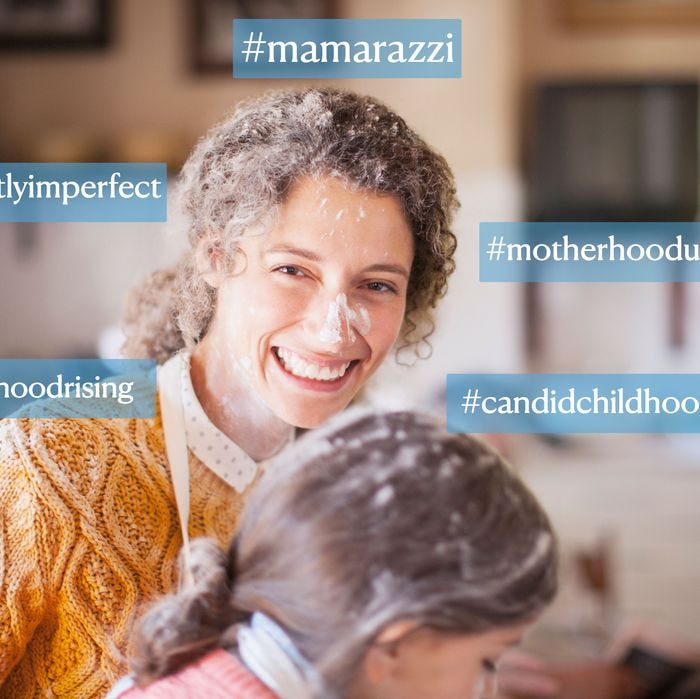
Kathryn is a Ph.D. candidate at Concordia University and has spent the last three years studying momfluencer culture. She’s written for a slew of mainstream outlets, including Buzzfeed, The Cut, The Guardian, The New York Times, and many others, and she currently writes a delicious newsletter for The Cut, called Brooding, which Kathryn describes as follows:
You can expect close inspections of digital culture’s entanglements with modern family life, reflections on what community means in our times, and reporting on the trends and personalities that manage to invade our minds and influence our ideas about home. To me, family life overlaps with everything else. I’m indiscriminate in my need to understand what the hell is going on in the home.
Kathryn’s writing is singularly funny, smart, and specific, and she’s been a consistent touchstone for me as I’ve approached the research and writing of Momfluenced. So I was so happy to talk to her about Brooding, about how writing about motherhood and parenting has changed throughout the years, and about the deep joy of cultural criticism slash ethnographic anthropology. Plus The Pioneer Woman and Rae Dunn and endless oceans of prosciutto!
Per usual, this interview has been edited for clarity and length!
Kathryn! How did you become interested in momfluencers? Can you tell me about the evolution that sort of landed you in this space?
I worked in men’s media from like 2006 to 2012, and I was really afraid of aging out of the space (and of getting fired every six months). I had my second kid in 2013, and I decided to leave my job and start a master’s program. I was not a very academically minded undergraduate. I just wasn’t ready. But having kids really kind of clarified my sense of perspective about who I am in the world. It gave me a lot of confidence. I know a lot of people have the opposite experience where they're like, I had kids and my brain dissolved. Who am I? What am I?
But before I continue, I have to preface everything with the fact that I lived here in Montreal. I had a year of paid maternity leave for each of my kids. So I was at home full time getting paid and experiencing zero fucking stress. It's illegal for your employer to fuck with your position while you're gone so I was not concerned about losing my job. And then once I went back to work I had $7-a-day daycare (which is now $9-a-day). It was amazing.
Wow.
So my brain was not under many sorts of stress that for many people make life feel impossible. And I honestly don't know who I would be today if I didn't live in the province of Quebec. I think I would be a really different person. I think my life would be totally different. I don't know that I would’ve had two kids. I definitely wouldn't have gone to graduate school. I just think it’s important to think about how all these factors enabled the last 10 years of my life to be what they have been.
So all that being said, I had a kid and I was like, oh, suddenly I have ideas and questions, and like, I just felt like a full grownup for the first time. I was like, I'm entitled to speak.
I get that!
So I got a master's in digital anthropology. It was literally just like, What do I love? I love the internet. I love mom blogs. I think they're so interesting. I loved fucking Ree Drummond. I read Ree Drummond years before I had kids. And so I just started doing my master’s research on that.
What did you love specifically about about mommy blogs (and Ree Drummond)?
I found Ree to be so endearing, so guileless, and I fully bought into the fact that she was just being herself. Also the early Ree is really different. I’m talking like 2007 Ree. She was mostly just cooking. We didn’t know her kids’ names. We didn’t know anything about the ranch or about Ladd. I remember there was this piece in The New Yorker that came out which revealed that Ree and Ladd Drummond are like, these huge landowners in Oklahoma, right? It was a very different time in terms of media personalities. Ree was also so different from me, so I didn’t feel any sort of competition to, like, match up to her in any way.
Totally.
And I just loved her photos. It was almost like she was a proto-cleanfluencer or TikTok organizer. She would take these photos of her ingredients all lined up in little bowls, you know? I just loved it.
Do you think there was something about the fact that you knew Ree’s formula and you knew what you were gonna get each time that made it soothing?
Totally. It was very soothing content. Even when she started talking about her relationship with Ladd - “black heels to tractor wheels” – it was like this romance novel that she serialized on her blog, and I read the entire thing over the course of months.
It was quite boring! Like, I get it. You were in law school. You got together with a cowboy. It was a culture shock. But yeah, I knew the fucking formula. There were no twists.
Yeah, totally. So what happened after your master’s? When did you start writing for more mainstream audiences?
I had a column for Jezebel for like a year and a half, which was edited by the one and only Jia Tolentino. She was so great. And the whole world of parenting was so different. Parenting media was so different too. There were no news hooks and there was so much less urgency. When you think about writing about parenthood now, it’s just constantly fucking code red, right? Now, it's very challenging to write about parenting at all without really engaging with news stories that are in your face all the time.
So writing about parenting pre-2016 was like, you know, writing about smoking weed while your kids are playing. And Jia didn’t have kids, so she was just like, Haha, whatever you want, man. It was so fun. I was just, like, fucking around.
And then I decided to get really serious about momfluencers and pursue my Ph.D. My master’s project was about mobile device use among moms. I was interested in how moms used their phones around their kids in real life. And then I decided I wanted to actually look at the media that moms were consuming.
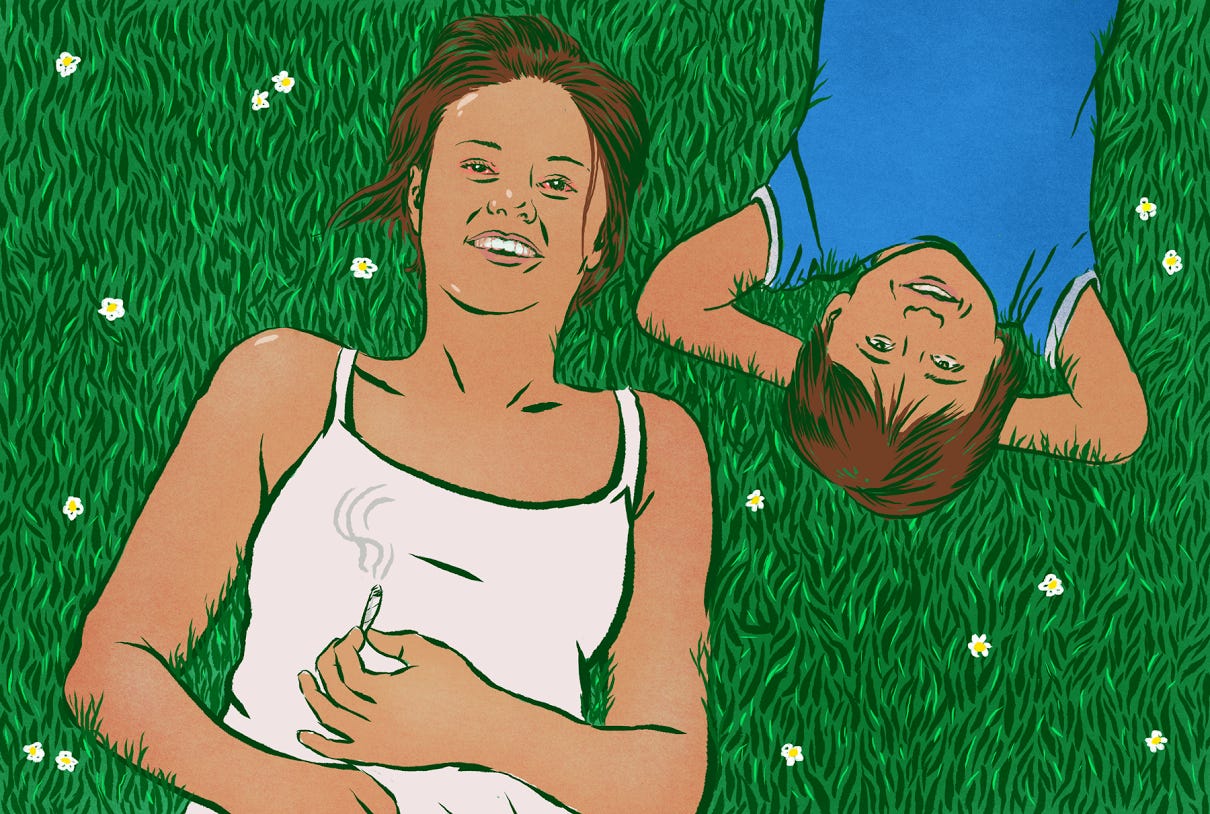
Can you think back to some of the conscious or subconscious things that you were personally grappling with at the time? I just think there’s almost always a personal hook for cultural critics, right? Something that gets us initially fascinated.
I think that for me, part of it was that I felt really apart from a lot of the momfluencer world that I was (and am) looking at. So at the beginning, I was just like, What the fuck? This has nothing to do with me. Why is this so different than me? I don't see myself in this. I’m a mom but this isn’t about me.
I wanted to understand why I couldn’t see myself in typical momfluencer content. And as I studied it longer, I realized, that, yeah, I'm not going to see myself. I think a lot of people can see themselves but I’m just not one of them. And again, I think it has to do with living in Montreal.
On the one hand, I'm very close to New York and the United States. And like, we all look at the same on Instagram, you know? But I also feel worlds away. The pressures and the stakes are really different. And I think that has made it possible for me to look at this stuff and to feel like it doesn’t actually touch me. I think that if I lived in New York or Boston or whatever, my relationship with this material would be really different. And I would feel more personally targeted.
I’ll also say, none of my friends look at this shit. Every so often, one of my friends will be served some of it on Instagram, and they’ll be like, Wait, is this what you study? And I'm like, Yes! And they're like Oh, weird. Like, no, no, no, no, no! So this is all to say that it’s very fun for me to study this stuff because of that sense of remove. But I also recognize that it's very un-fun and dark if you feel like you need to be really engaging with it or like, measuring yourself up against it, right?
Totally.
So anyway, I just kept writing. I wrote a piece for Buzzfeed.
The MLM one?
Yeah, and as I kept going, I was like oh, fuck. I fell in to a deep, deep cavern. And I was like, there's so much more here. I got totally obsessed.
YUP.
And it just kept being interesting in new ways, you know?
Totally.
There was just so much meaning. Everything was thick with meaning. And I was just like, you would be totally crazy to deny the significance of this stuff.
Why do you think it took us so long collectively to notice the elephant in the room and start having conversations about the elephant in the room? The elephant in the room being the explosion of ideal mommy content seemingly everywhere you looked.
I don't know. Misogyny, patriarchy. I don't know. I mean, there was a crop of articles written about some of the original mommy bloggers, like Heather Armstrong. There were millions of articles written about her, but it kind of stopped there.
It was definitely more individually based. Like, we're really obsessed with Taza or Natalie Jean. Let’s do a deep dive on her. Versus like, the whole universe, you know?
Yeah. I will say that people in academia have been analyzing online mom cultures for a long time. There’s a lot of literature that just didn’t cross over to the mainstream.
So how has your cultural criticism for more popular audiences transitioned throughout the years? And how you did you end up writing your Brooding column for The Cut?
So I ended up getting a job-job because I needed the money, and as a result, I didn’t work on my thesis for like, two years. And I sincerely thought that I was done being a writer and a person with opinions in public, because I just didn’t have time to balance writing with my job. And then the pandemic happened, and I was home with my kids, and I was just like, I guess I'm fucking done. I was really down. But then, I somehow decided that I had to at least finish the Ph.D. I was determined to write my dissertation, to finish it.
And I started my Substack really as a way to start writing again. I thought maybe, if I start having fun again, I’ll be able to write again. So I looked at Substack as a little treat for myself, and I also knew I’d be forced to write if I was doing so for an audience, for real people in the world.
And to answer your question about cultural criticism, I didn’t even think about my research in those terms initially simply because I didn’t think people cared. But after starting my newsletter, I’m understanding that people want this stuff explained.
Right.
Because people are consuming momfluencer content constantly. And they're like, please help me understand. I mean, I spend half my day looking at this stuff sometimes and I sometimes struggle to understand that’s really going on, you know?
I also think Substack as a platform was great. I really had the most fun writing I've ever had, and when The Cut offered me a column, I was honestly really nervous about it. Like, I broke into hives about it. Just because I had been having so much fun with my Substack. But I also thought that it would be cool to write about a broader variety of topics, you know?
I knew I did not want to give advice. No one needs to hear from me about the right way to do anything.
I totally totally, totally relate to being like, literally allergic to prescriptive parenting literature. But I also think there is something deeply satisfying about targeting a problem in any mothering/parenting ecosystem. And speaking directly to that problem. Do you know what I mean?
Definitely. On the one hand, I think writing about problems is the only interesting thing, right? But writing about fun things is a thing too! So one of my essays for Brooding is about Rae Dunn collectors.
And this is the kind of writing that I love the most, which is not problem-centered. It's just like, sort of ethnographic anthropology. This is also the way I looked at momfluencers. Like, check out this crazy shit. And also, like, it's cool! Like the genre of it-looks-fucked-up-but-actually-it's-sort-of-cool. That, for me is my favorite genre.
But when you're talking about parenting, obviously it's a problem space. So I'm really interested in using Brooding as an opportunity to figure out new ways to write about parenting. I don't know what they are. I don't know if I can successfully do it. It’s like, yes, there are so many problems. I don't have the answers to any of them. I can identify them and I think talking about them is really important. But I also want to invite a sense of intellectual fun to parenting.
For people somehow unfamiliar with your work, what are some pieces that best encapsulate your sweet spot as a writer?
Two pieces that were the most fun I've ever had writing are about coziness and charcuterie [Sara chiming in here - Kathryn’s title for the charcuterie piece is “Rootin’ tootin’ charcutin’” sooooooo I CHALLENGE YOU not to love it].
Both topics came to me unexpectedly. And it was kind of a revelation for me to realize that you can approach a certain topic, and if there’s a ton of media on that topic, and we all see so many versions of it, people have a shared sense of it. I loved that people just got it, you know?
Totally.
At first I was worried these pieces would be too weird, and no one was going to get what I was trying to do. And then I had brilliant responses from people being like, oh, like, have you thought of this? We’re all creating meaning. That’s the thing. Individually, personally, privately, we’re all creating meaning from these images we consume. And we’re all, in our own ways, mini scholars, because we all have thoughts about this stuff; we just might not share them.
It’s an intimate space - you and your phone alone in the bathroom - or you and your phone in line at the grocery store. And for many people, it’s a very private world. But they still have so many thoughts about it all! And it’s so fun when you can invite people to share their insights (which are impressive and awesome). And for those two essays, people really responded, and I was like, oh my god. I just loved hearing from readers.
And what you're saying also highlights the effect and import of cultural criticism, in general, right? It also highlights the fucking joy of it! It’s so fucking fun and joyful to be like, Oh my God, yes. Someone else gets it. Someone else notices this thing too. You know?
It’s very fun. And cultural criticism helps us really know what we already know a little bit, you know what I mean? Sometimes you just need someone else to take it a step further and it’s like, Oh shit, that’s why I’ve been thinking about this thing so much.
We already know so much. But you know, most of us are not sitting around fucking trying to compose essays about it.
Yes, yes. That's my favorite part of reading cultural criticism for sure. For that yes me too feeling.
And also this stuff matters so much, so the idea that it’s trivial is deeply offensive. It’s so important. It’s part of a burgeoning canon. It’s our history.
Thank you Kathryn!
I also want to shout-out to my fellow Rudy Jude-heads out there. Kathryn’s essay on RJ is chef’s kiss perfect and is absolutely a must-read. She covers it all: Hot Tony, the aesthetically pleasing hot tub, the kids’ impressive knife skills, The Jeans, RJ’s smugness (I know her name is Julie, but she is Rudy Jude in my head), the picturesque Maine island. KATHRYN COVERS IT ALL.

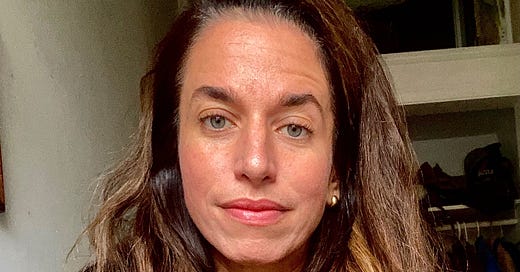


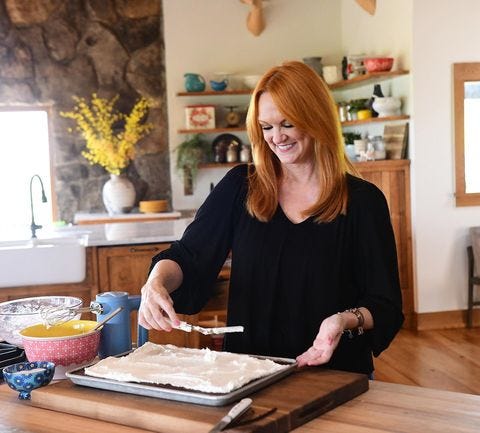
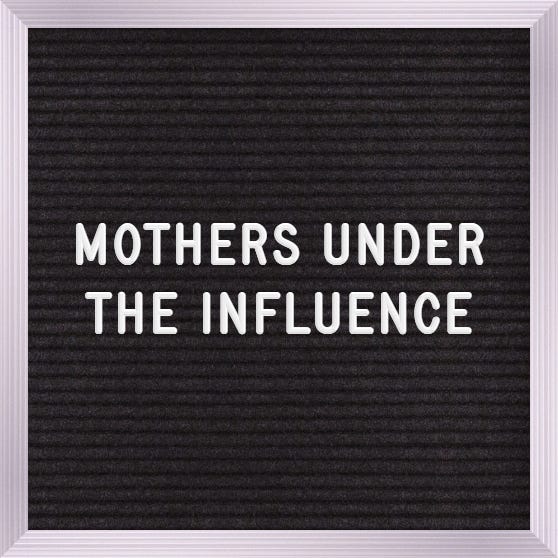
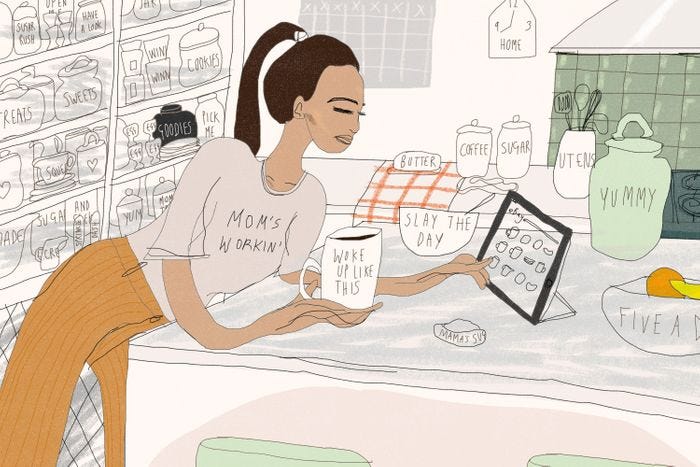

My 14 year old daughter referenced Rae Dunn font recently and I was like, "What?" She is generally amused and cynical about influencers.